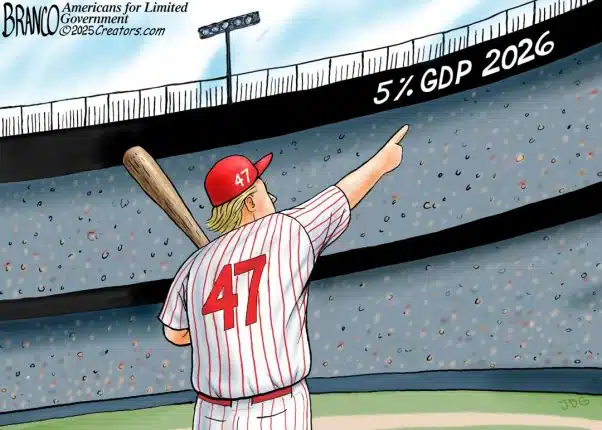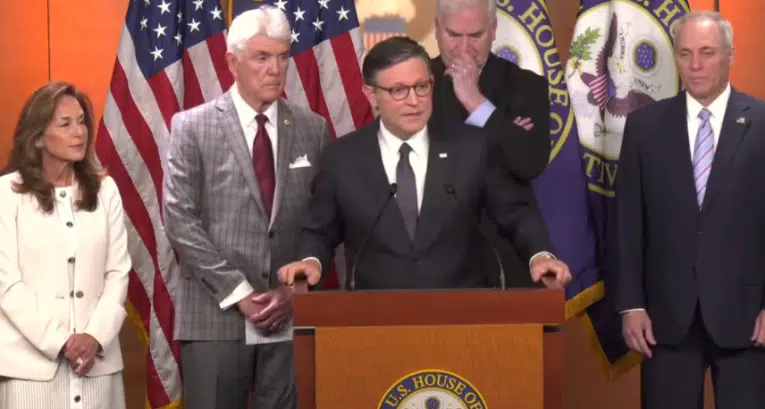By Kevin Mooney — Attention incoming House and Senate Republicans.
You are well positioned deep inside enemy territory to operate as constitutional insurgents. This means you are not part of the club and must remain separate and distinct from your party’s leadership in order to remain effective. Incoming House Speaker John Boehner and Senate Minority Leader Mitch McConnell deserve the loyalty and respect of their newly elected members. Both leaders operated effectively and shrewdly against a far-left administration that has significant majorities in both houses of congress. Irresponsible, intrusive, costly legislative items were blocked and defeated thanks to their principled stand.
But it is important to remember that a fair amount of daylight exists between the Republican leadership and Tea Party activists who are committed to the ideals of the founding period. The Nov. 2 vote was more of a rebuke to the Democrats and Team Obama than it was an endorsement of Republican majorities. In many respects, the Tea Party movement began as a rejoinder to big government Republicans who walked away from the 1994 revolution. Former House Speaker Newt Gingrich (R-Ga.) has the right perspective here.
Although the media portrayed the government shutdowns in the 1990s as a victory of President Clinton, Republican majorities were re-elected in consecutive elections for the first time since the 1920s, Gingrich has observed. The party’s conservative base was energized back then because it saw the shutdown as evidence Republicans were serious about controlling spending, he has explained to listeners at various speaking engagements.
Unlike their 1994 predecessors, the 2011 class of freshmen benefit can benefit the fresh experience of previous Republican majorities. They initial curbs on spending that helped balance the budget and the successful push for welfare reform stand out as historical achievements. But after this initial success, too many GOP lawmakers became smitten with Washington D.C. There is no sure way to resist the onset of Potomac fever, but freshman Republicans should reach out party members who have offered up serious, detailed anti-spending plans. The Republican Study Committee in the House is a good place to start. It has been a reliable incubator for small government initiatives that operates beyond orbit of the party leadership.
Going forward, is also important to note that Rep. Boehner is opposed to term limits, which has become an article of faith for many constitutionalists. The House Speaker-elect is certainly entitled to his view but there is no denying the strong correlation that exists between the time elected officials have in office and their unwillingness to control spending. Richard LaRossa, president and CEO, of the National Term Limits Coalition has put together a brilliant database on his site that tracks “Poster Children for Term Limits.”
In the upper chamber, outgoing Sen. Jim Bunning (R-K.Y.) received a paucity of support from his own party members when he called for spending cuts to offset the costs of expanding unemployment insurance. This was an ever so modest proposal that was resisted by leaders in both parties.
But there some cause for encouragement looking ahead to 2011.
On November 3rd, Sen. McConnell in an interview with FOX News’ Brett Baier spoke on increasing the national debt limit, “I think it will not be without some strings attached, if it happens, because they’re going to have to seriously address spending and debt.”
The idea here is to use the statutory limit on the national debt as leverage against additional spending. It would not be so easy for the U.S. Treasury to roll over debt as it comes due under this scenario.
“By this time next year, the Federal Reserve will be the number one holder of U.S. debt, a sure signal that we’re printing money to pay our bills,” Bill Wilson, president of Americans for Limited Government warned in a recent column. “In the next few years, the debt will soar past 100 percent of the Gross Domestic Product. By 2018, if not sooner, our Triple-A credit rating will be downgraded. All of these things will mean higher costs to paying the debt in the future, and a weaker dollar. In the end, the dollar will likely lose its special status as the world’s reserve currency. That is, unless Congress reins in the out-of-control spending and turns the Ship of State around. One way to do that is by attaching budget cuts to any increase of the debt limit, which Republicans now indicate they are willing to do.”
The political establishment has already voiced its opposition.
“The government cannot function unless the debt ceiling is lifted,” former Labor Secretary Robert Reich, moaned. “Ordinarily, it’s automatic,” he said, adding, “The public is in no mood for a government shutdown.”
Here are a few more suggestions.
House Republicans should use their new majorities to launch investigations into taxpayer funded groups that advance partisan political causes; yes that would be ACORN, known in full as the Association of Community Activists for Reform Now. Contrary to what has been widely reported the organization remains up and running under renamed affiliates. Rep. Darrell Issa (R-Calif.), the ranking Republican on the House Oversight Committee has already produced some highly detailed reports.
The extra-constitutional power grabs of administrative agencies have gone unchecked and unchallenged for far too long; it’s high time congress asserted itself. The transgressions of the Environmental Protection Agency (EPA) are well documented and serve as a good starting point. But the problem is much more widespread. The Obama Administration’s use of so-called policy Czars should come in for scrutiny.
Matthew Spalding, a constitutional scholar with the Heritage Foundation, suggests that the problem here is not so with czars per se but with the expansion of administrative capacities that raises larger questions about the separation of powers. The testimony he delivered before the Senate Judiciary Committee in 2009 is worth reviewing.
However offensive or alarming the activities of a particular czar may appear in the eyes of administration critics, Congress is ultimately responsible for vague and open-ended laws that allowed the federal bureaucracy to grow, he explained in an interview.
“There is a larger and broader constitutional question concerning this massive delegation of authority from Congress to the executive branch,” Spalding said. “In many respects, the czars represent an attempt by recent administrations to control this bureaucracy. The question I would raise touches on whether or not Congress is massively delegating authority unconstitutionally in the first place.”
Republicans ought to be realistic about what can actually be achieved between now and 2012. That doesn’t mean they should accommodate bipartisan exercises that work against taxpayer interests. There is a real opportunity to ignite a constitutional revival.





